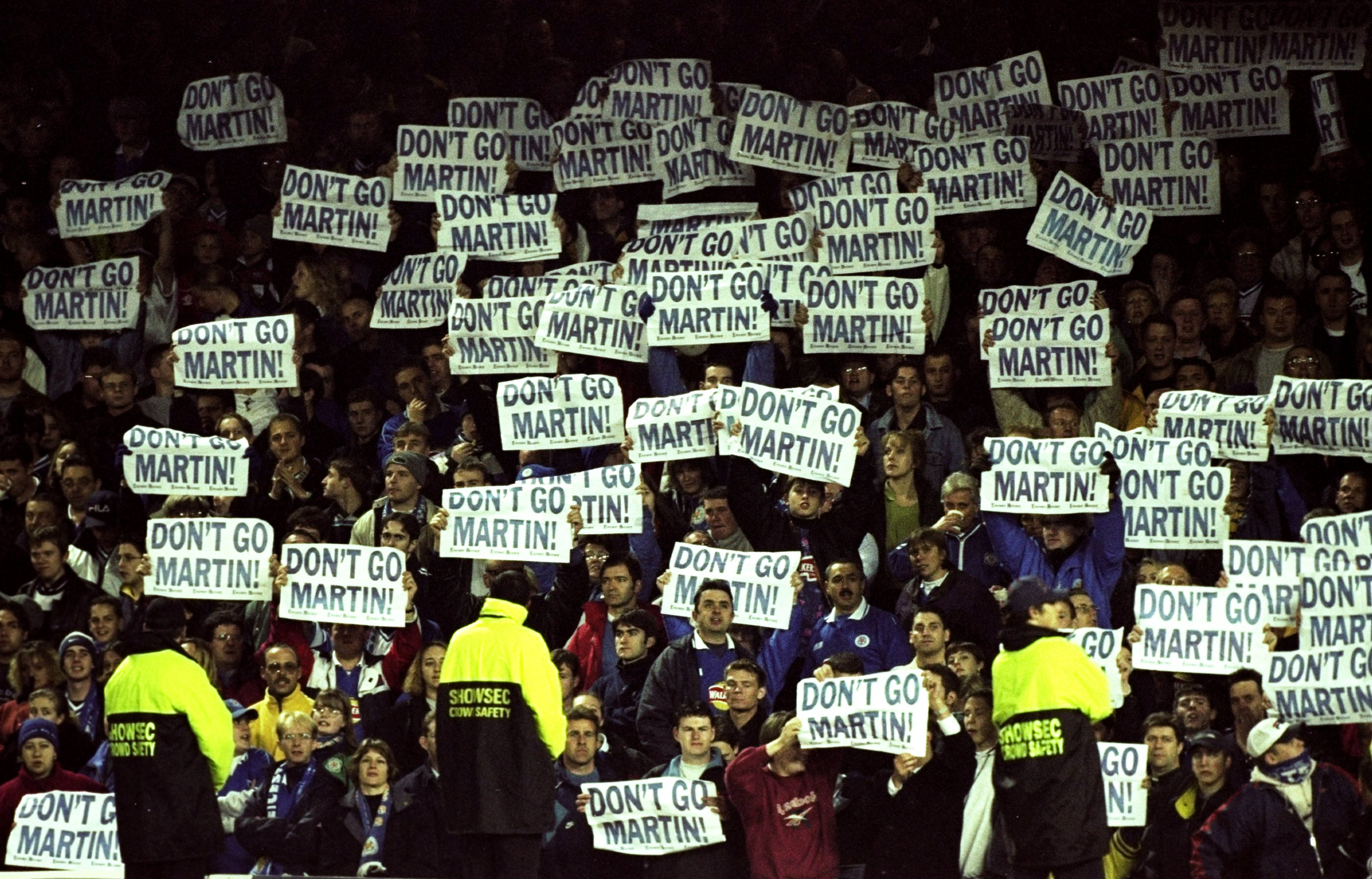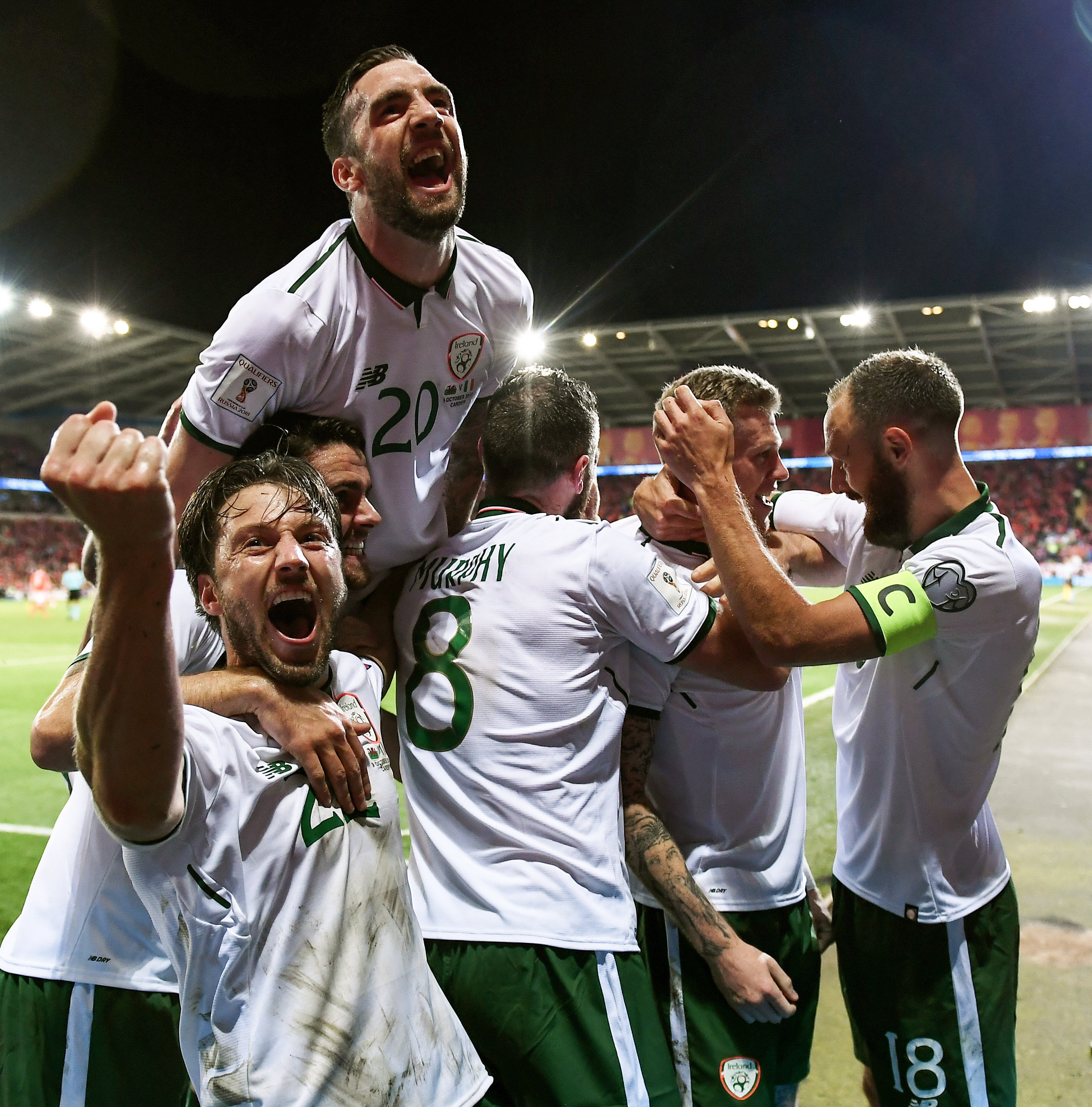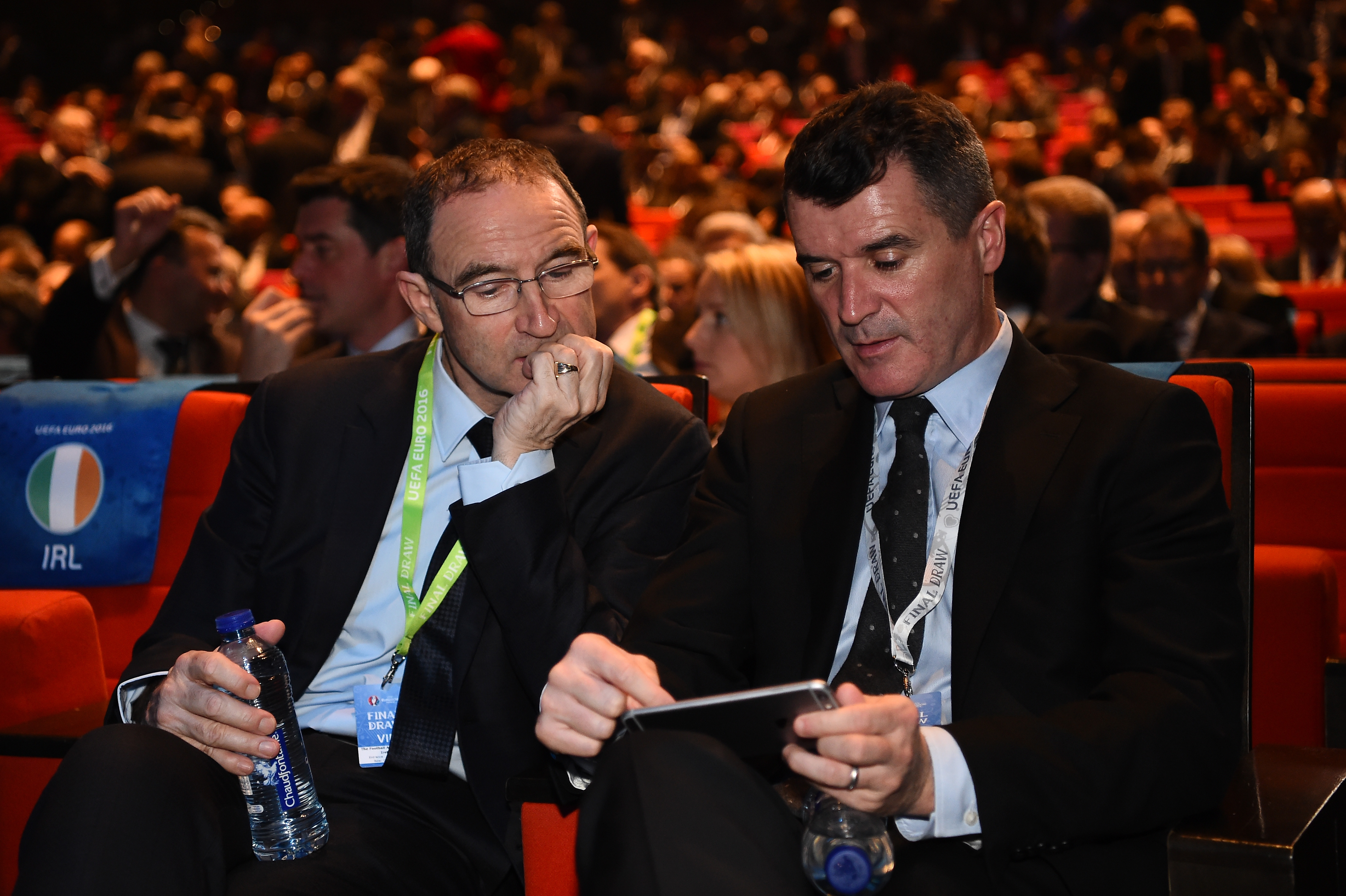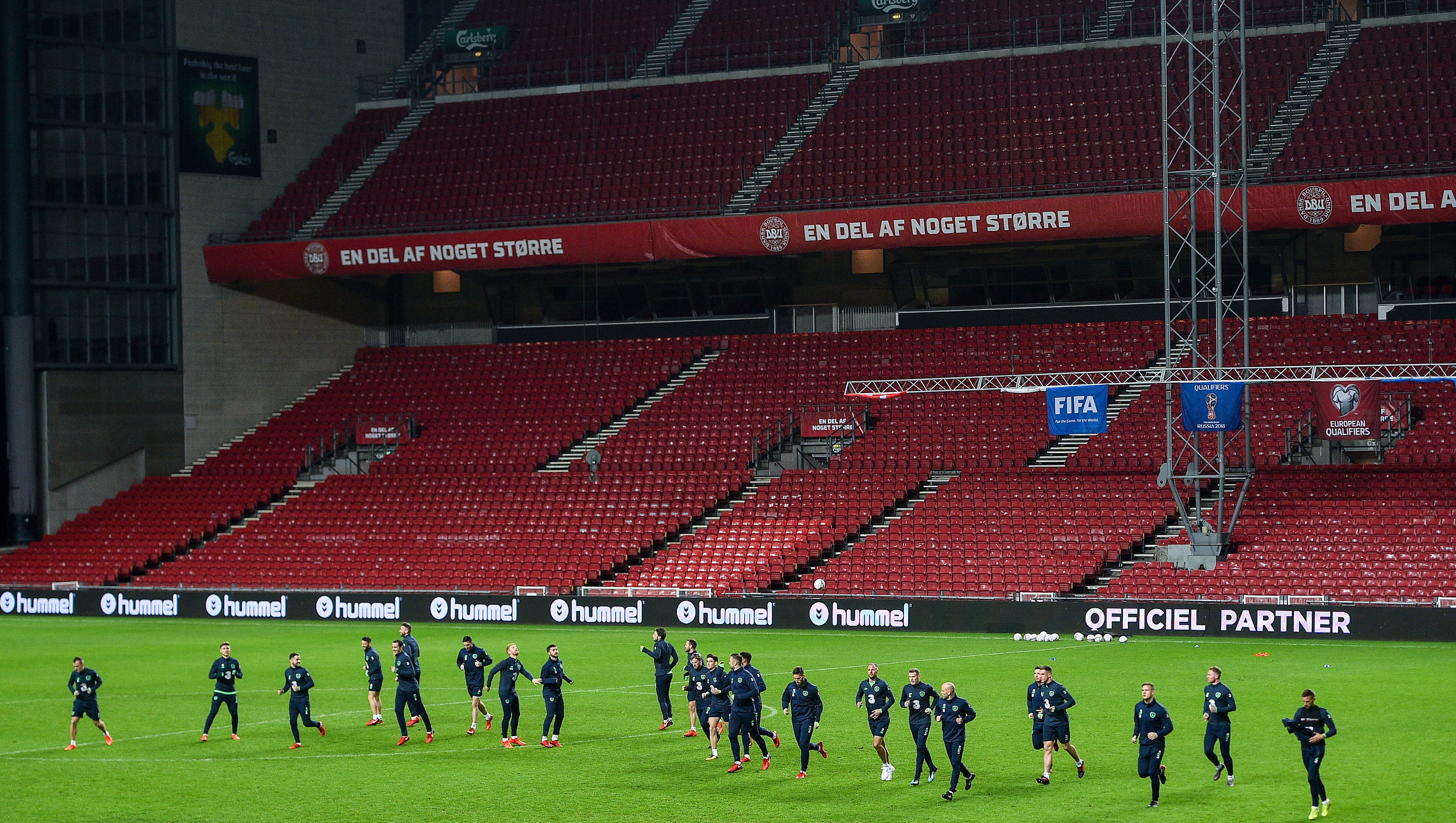

Share
11th November 2017
10:58am GMT

Trapattoni wouldn’t keep him long. He had a simple question and then this Irish international could get back to training. “Who are you?” Trap is said to have asked.
Trapattoni monitored Ireland’s players by watching them on DVDs sent to his home outside Milan. This was a convenient arrangement for the manager, but it also said something about his attitude to the Irish team.
There was no need to be too curious about these players. There was no need, say, to go to a game to watch them play. His assistant did that and there wasn't a lot to learn.
There were the “famous” players like Robbie Keane and Damien Duff and then came the rest. They may have been images flickering across his screen, waiting to be inspected at close quarters when he flew to Dublin where they could be identified and selected often on the basis of their obedience.
Martin O’Neill is different. During the dark September when Ireland picked up one point from games away in Georgia and at home to Serbia, O’Neill seemed to be publicly frustrated by his players, praising their effort and commitment in a way which suggested that a lot of the time there wasn’t much else.
It was the closest he had come to the Trapattoni public position which was essentially that Ireland should get over itself. In a country with no league and only a few players, people should acknowledge - as they did everywhere else in Europe - what Trapattoni had achieved.
Instead, Ireland treated the discarded like heroes and always carried this strange hope that there was more to come.
"When I heard the reaction from the crowd to McClean, I thought, 'Is Messi or Maradona or Pele coming on?’,” Trapattoni said when James McClean made his debut in 2012.
https://twitter.com/SportsJOEdotie/status/928741820187774976He was joking, but it was also the truth. O’Neill, on the other hand, would never deny hope.
Even at the low point in September, O’Neill found a way of insisting there was a way to the play-off. Few believed him and O’Neill may soon be reminding people of that, just as he reminds them of Leicester’s supporters hostility to him at one point or the mood in Ireland after the home draw with Scotland in 2015.

O’Neill is nobody’s idea of a clubbable, easy man, but if the game is about players, O’Neill sees his job as being about drawing performances from them however he can.
After Ireland’s victory in Cardiff last month, few can doubt O’Neill’s ability to do that. His powers may have worked best when it was unexpected but, now, after Cardiff and the theoretically kind draw against Denmark, it is expected that O’Neill will do it again.

“Just win and get the players running for you,” O’Neill advised Paul Lambert when his former player entered management and a lot of what O’Neill has achieved as a manager could be found in those words.
After Ireland drew with Germany in Gelsenkirchen in 2014, O’Neill was finishing his media duties for the night when a figure leaned in and said hello.
At first, O’Neill thought it was more intrusion from a journalist, but then he realised who it was when he looked up and recognised the face.
“My man!” O’Neill exclaimed, “How are you? Great to see you.” There was real enthusiasm in O’Neill’s voice as he caught up with Habib Beye, a player he had managed during his final season at Aston Villa. Beye looked thrilled as he walked away from the encounter, as if, even now when none of it really mattered, he had gained something from pleasing his former manager.
O’Neill is too angular and awkward to be considered simply a players’ manager who makes them feel good, but whatever gifts he has depends on players craving his approval and that requires him to be available one way or another to provide it.

In an interview with Luke Edwards in the Daily Telegraph last week, he dismissed the idea that he was a manager who stayed away from training, stressing that he was there without getting in the way of the players. But he is also there, a presence, which often leaves those players wondering what he is thinking.
Famously, they won’t know the team on Saturday until the final hour before the game, but O’Neill sees this as the best way of making his players play. Unlike Trap who picked the same team often days in advance - after all, what difference would changes make? - O’Neill is often prepared to surprise. He may not do much work on the opponents with his players, but he is always thinking about them.
On Friday in Copenhagen, he exuded a relaxed and easy air in the pre-match press conference. Why can’t it be like this every day, some journalists might have wondered, but then we are not the point. It is easy to say that O’Neill was trying to relax his players before a huge game, but it is easier to spot it than to do it.
As Ireland trained in the Parken Stadium afterwards, workers in the offices that are a part of the stand behind one goal could look down on the session. O’Neill wouldn’t do much the night before the game, but he was said to be reluctant to do anything with unauthorised eyes looking on.

Whatever ideas O’Neill might have had about the team selection and set pieces could be explored on the training ground, but not this one.
On Tuesday, Keane praised the manager’s ability to say the right thing at the right time. O’Neill has the reputation for finding the right word before a game, but there always has been more to it than that.
“If you did well for him and gave maximum commitment he would make you feel like you were the best player in the game. You also feared upsetting him and he never let anybody rest on their laurels,” Matt Elliott, who played under him at Leicester City said once.
In his interview with the Telegraph, O’Neill stressed once again that the game is about players.
“The manager is very, very important,” he said. “I’m not minimising that. Great managers are worth their weight in gold, but the game belongs to the players. You want to see the players performing, the great managers try and get a reflection of themselves in the players.”
Since he arrived at Ireland, he has tried to do that. Perhaps he has become frustrated at the expectation from some that an average squad can do more, but he also played in a style - or an absence of style - which should be familiar to all who have followed his career.
But if Ireland can overcome Denmark then nobody will care, then they will talk about the O’Neill way and the weaknesses will be seen as strengths and the strengths will be viewed as wizardry.
There is already a touch of wonder. Shay Given told Richie Sadlier on Second Captains that all the things another manager would be doing in the build-up to a game like working on shape and the opposition, O’Neill won’t have done. Or if he is working on it, he is working on it in his mind, burdening the players only with the information he regards as necessary for them to achieve a result.
“He would get in your head and that was his way of getting the best out of players,” Steve Walsh a former Leicester City player said.
"Martin O'Neill ruled by fear," another old Leicester player, Spencer Prior, once told FourFourTwo. "As a player, you played under a fear of failure - a failure to get results, a failure to perform to the best of your ability, a fear of letting him down and letting your mates down. You were driven by that.”

People who know O’Neill say he will do anything to get the conversation away from football. He is unusual among football people in that he can spend a long time asking questions rather than talking about himself. He is curious about others and interested in their lives which is unusual and may also inspire loyalty.
O’Neill achieves that, too, by saying the right thing, as Keane said, at the right time.
When Ireland played in Tbilisi in O’Neill and Keane’s first competitive game, Stephen Quinn spoke afterwards about what the manager had said and how it had made the players feel.
“We pulled a meeting before we got on the coach tonight,” Quinn said, “and it was a powerful meeting to be honest with you. It was quiet, he is softly spoken, but when he talks you listen, you need to, because he is softly spoken. The hairs on the back of your neck stand up.
“He just said we have been waiting for this long, you are playing for your country and you must be proud and show no fear going out there, stuff like that, you know? He has injected confidence and pride into us and it’s really great to play for him.”
Quinn would only find out he was playing that night at the other end of the coach journey, something he felt engaged all the players and kept those who weren't playing as tuned into the message of the team as those who were. Others might feel it creates uncertainty, O'Neill might think it is a winning combination.
Through all these factors, he has restored Ireland's ability to win on the biggest nights and to believe that any team can be beaten. With two big victories away from home in this campaign, it is more than just rhetoric.And now, they have two more games to negotiate if they want to reach the biggest tournament of them all.
Before Ireland played Bosnia in the European Championship play-off two years ago, O'Neill was said to have delivered a captivating team talk, speaking so quietly that the players ended up moving closer to him simply so they could hear him. When he spoke, he reminded them of their responsibilities, what they had already achieved and what was now at stake. Again, there were no words that would strike anyone as memorable but O'Neill understood how to make it so.
Tonight in Copenhagen, he will deliver a similar message with an even greater prize on offer. He will stress their shared experience, all they have endured and the identity of his Ireland side, which is both strangely unknowable and instantly recognisable. In other words, it is a side in the image of its manager, a team which has faith in its ability to triumph in any circumstances and emphatically believes in Martin O'Neill's powers of persuasion.Explore more on these topics:

Sports | Joe.ie
sport